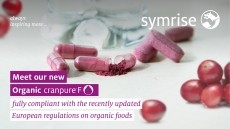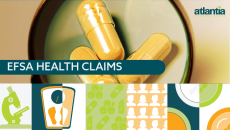Desert Labs launches hoodia weight management gum
Hoodia gum maker defends satiety effect

Desert Labs launched ‘Snack Less’ gum in October last year containing hoodia, a genus of 13 species in the flowering plant family Apocynaceae linked to appetite control.
Hoodia has attracted a lot of negative press since Unilever severed a €20m ($26m) partnership with UK firm Phytopharm in 2008 to develop products with hoodia species gordonii.
Unilever later said that the reason for canning the project was a clinical trial, subsequently published in the American Journal of Clinical Nutrition, which doubted the safety and efficacy of the plant.
Different species
For its gum, Desert Labs uses a different species to Unilever’s choice, called parviflora. Each gum piece contains 125 mg of hoodia and takes 2-3 pieces to suppress appetite by sending signals to the brain, says the company, referencing several published studies.
Asked if all the bad press about hoodia could prove problematic for the new product, Ari Benami, president of Desert Labs said: “We hear that all the time. It’s an obstacle we have to overcome."
“I think the issue with Unilever was actually the supply chain…it’s the Wild West in terms of what you can get.”
'Chew your cravings away’
He said hoodia’s image had been tarnished not by Unilever but internet marketers making outrageous claims leading to lawsuits.
In 2011, for example, The Federal Trade Commission (FTC) cracked down on Nutraceuticals International LLC and Stella Labs LLC for alleged false and deceptive weight management claims about hoodia.
Desert Labs has consequently toned-down the claims on its product.
“We chose to make a smaller promise than outright ‘lose weight’,” said Benami.
Desert Labs opted for the name ‘Snack Less’ and used ‘chew your cravings away’ as a tagline.
Self-affirmed GRAS
The company worked with Intertek to achieve self-affirmed Generally Recognized As Safe (GRAS) status for this hoodia strain, which declares it safe as a food a ingredient and supplement in the US.
The company does not have Food and Drug Administration (FDA) GRAS, but its self-affirmed GRAS has been enough to for Walgreens, the largest drug store chain in the US, to express an interest.
Benami said that no other hoodia gum company had self-affirmed GRAS and claimed the competition were “flying under the radar” by not preparing a dossier.
Sourcing and development
Desert Labs sources hoodia from its parent company Kibbutz Yotvata, the second largest dairy farm in Israel.
Hoodia is indigenous to Africa, but Kibbutz grows the plant in Israel and the gum is also produced there. Around three years ago, Kibbutz introduced its first hoodia product in ice cubes flavored with lemon juice.
Desert Labs had been working with Tab Labs for the gum’s development, but found that its partner was struggling to disguise the bitter powdery aftertaste that came by adding hoodia.
Benami said that Tab Labs later did develop a solution after it was acquired by Danish company Gumlink, but Desert Labs was already in advanced stages with Kibbutz.
Eyeing EU novel foods
The company currently sells the gum in the US and Russia.
Hoodia does not have novel foods approval in the EU, but Benami said that Intertek prepared its dossier with EU novel foods in mind and said it was only “a matter of time” before an application would be submitted in Ireland.
Desert Labs has already submitted an application to Health Canada after interest from Costco in Canada.

















